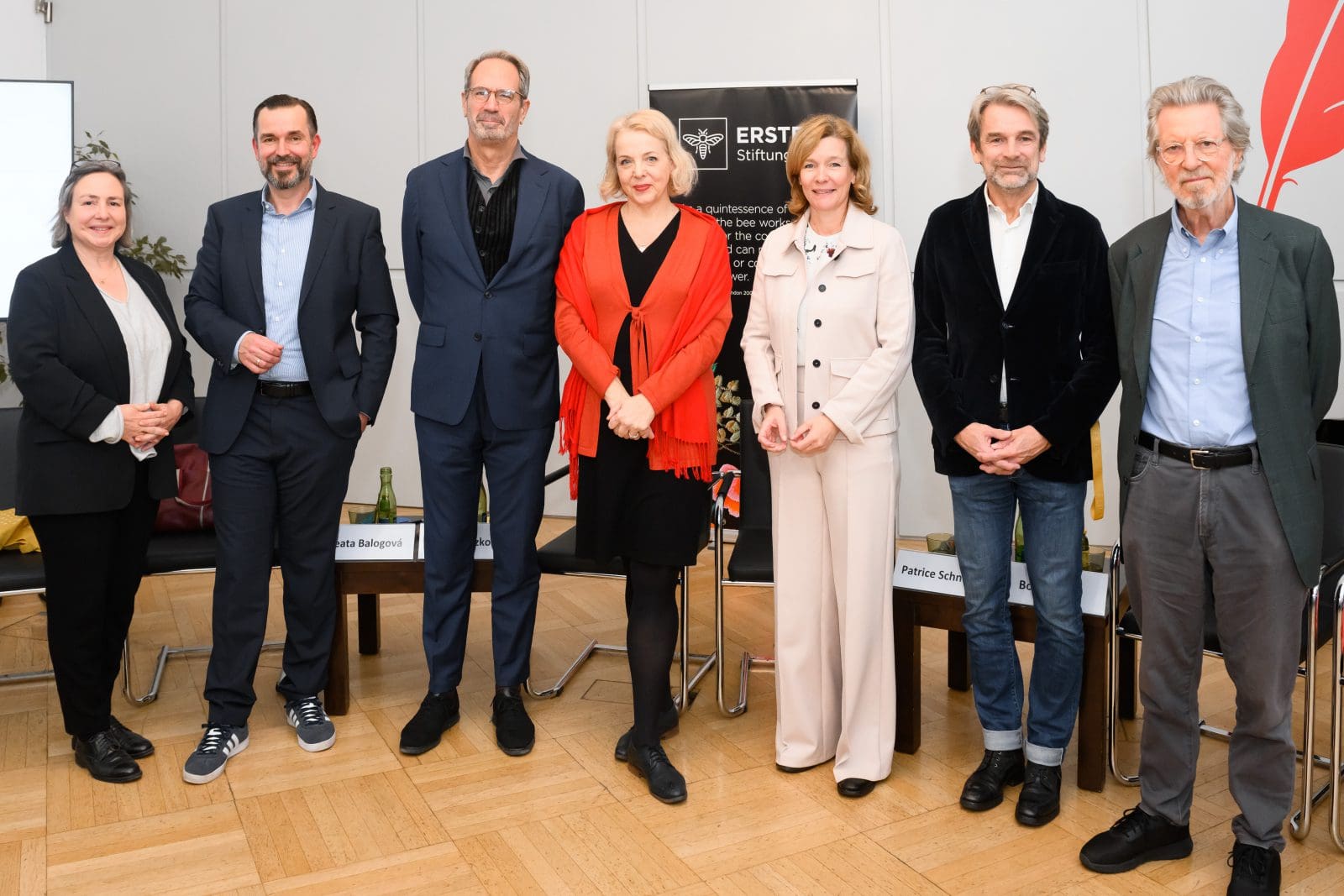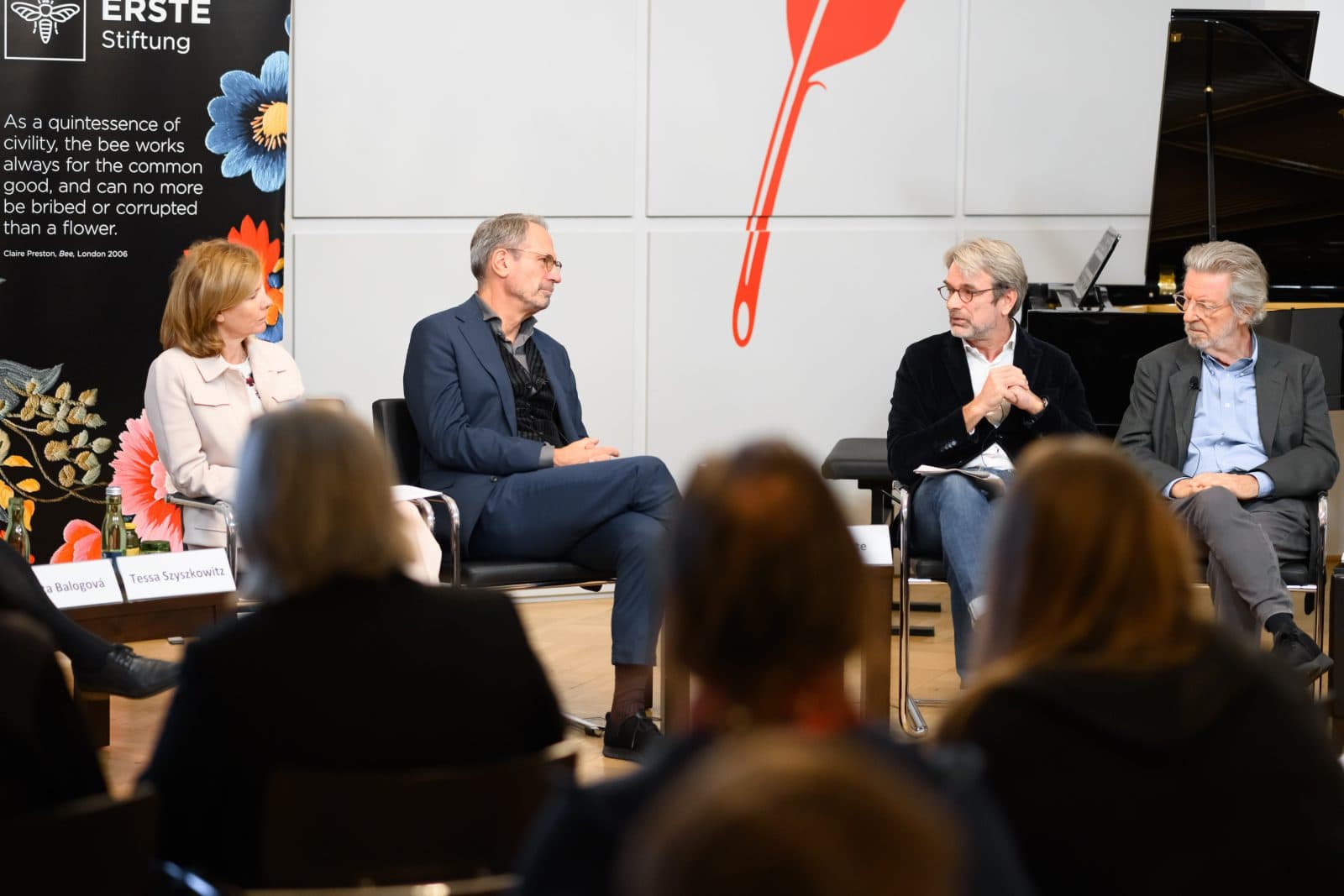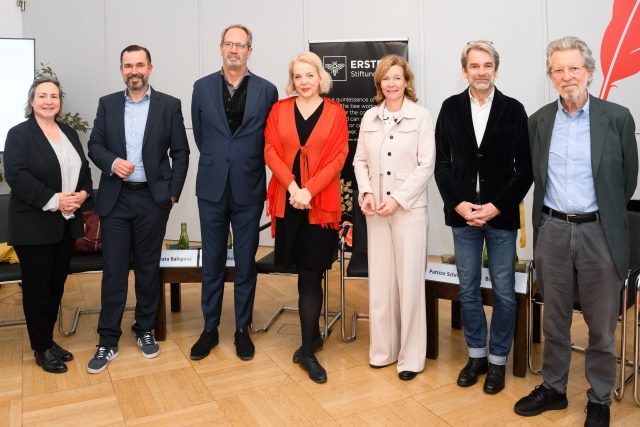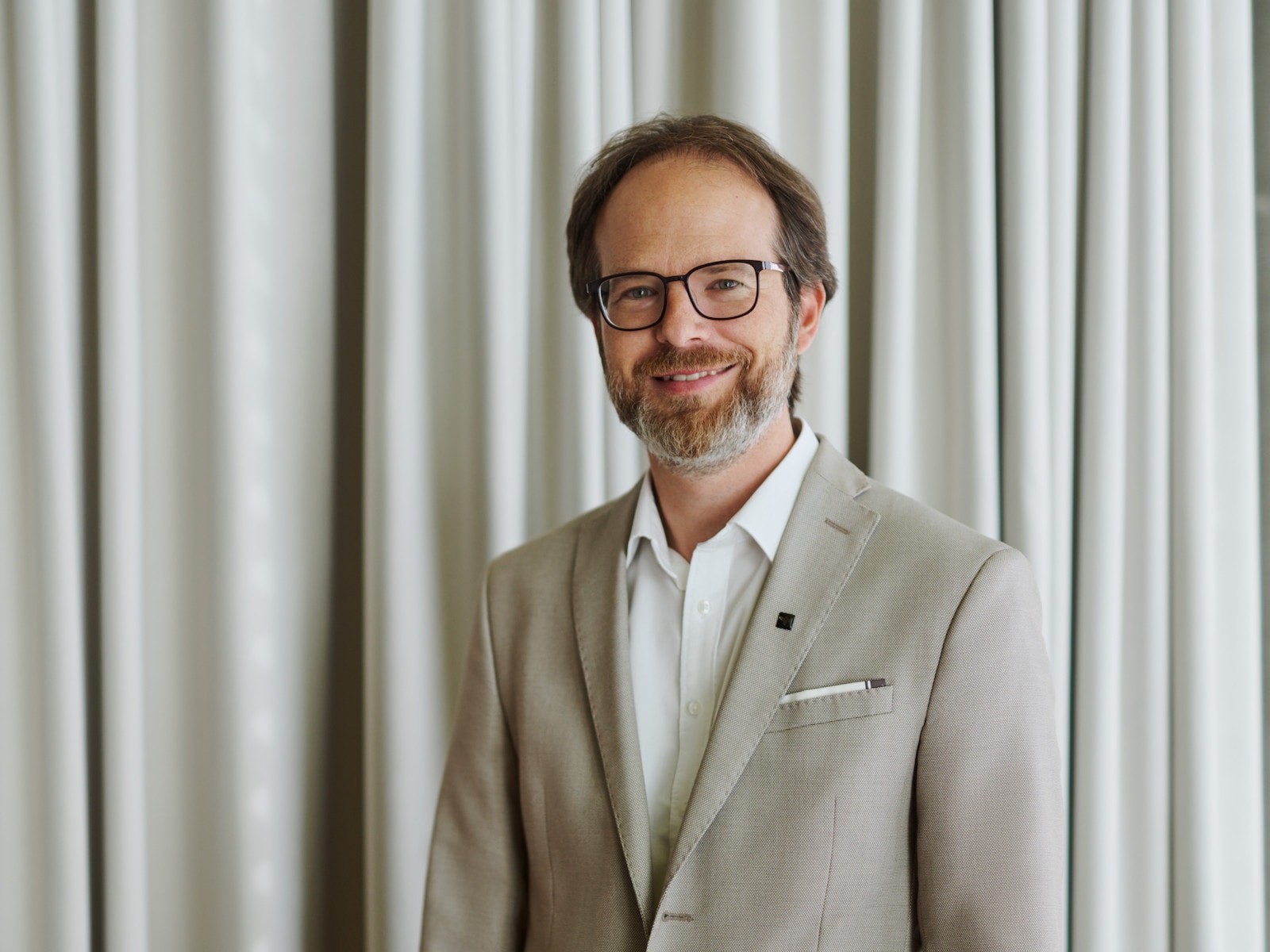ERSTE Foundation, core shareholder of the Erste Group, presented a new financial instrument for preserving media diversity on Monday evening as part of a prominent discussion in the Presseclub Concordia: Plūrālis.

For the first time, ERSTE Foundation has invested in shares of a company with a social objective: Plūrālis. The Dutch limited liability company wants to preserve media diversity in Eastern Europe by making targeted investments in media. Plūrālis sees stable ownership as the best prerequisite for guaranteeing editorial independence of media. This is a completely new approach that convinced the ERSTE Foundation: It therefore invested 2.5 million euros in Plūrālis.
Plūrālis was founded in 2021 with the aim of raising around 100 MEUR to specifically participate in Eastern European media. So far, around 50 MEUR in mixed capital (shares, bonds and funding from other foundations) have been raised. The aim of the investments is to ensure that at least one independent medium can survive in every European country.
There are currently three media companies in Plūrālis’ portfolio; the Polish publishing house Gremi Media, which publishes, among other things, the daily newspaper Rzeczpospolita; the Slovak publishing house Petit Press, publisher of the daily newspaper SME; and the Croatian news platform Telegram.hr. Further investments are being planned.

Discussion with Boris Marte (ERSTE Foundation), Patrice Schneider (MDIF/ Plūrālis), Beata Balogová (SME), Oscar Bronner (Der Standard) and Clemens Pig (APA)
On Monday evening, a group of experts at the Concordia press club in Vienna discussed the background that makes an investment company like Plūrālis necessary and what challenges arise from an ever-shrinking range of trustworthy media.
EU membership does not guarantee independent journalism
The evening kicked off with Beata Balogová, editor-in-chief of the Slovakian daily newspaper SME, giving an insight into the everyday life of a daily newspaper that was under the influence of a vested owner for many years but is now part of the Plūrālis portfolio. Her very personal report from Bratislava, a few weeks after the re-election of Robert Fico and his SMER party, was bleak. “Since the election, the new government has already blacklisted the daily newspaper SME. The Prime Minister refuses to answer our questions, instead they accredit conspiracy media, invite people from Russian propaganda sites to press conferences and favor them over my journalists. Unfortunately, belonging to an EU country does not provide security for independent journalism. That’s why we need media owners and good journalists with integrity who are interested in good journalism.”
Patrice Schneider is CSO of the Media Investment Development Fund and Secretary General of Plūrālis. The premise of Plūrālis is simple, he explained: stable ownership guarantees independent newsrooms, independent newsrooms produce balanced, trustworthy news, which in turn has a positive impact on society. He emphasized that Plūrālis is explicitly non-partisan. “Plūrālis invests in independent, successful media companies that practice responsible, quality journalism, regardless of their editorial orientation.” Democracies thrive on the social and political diversity of their populations, which should be reflected in the broad spectrum of opinions and media offerings. A free market can ensure competition between providers of different media content.
Loss of media freedom is a threat to us all
Boris Marte, CEO of the ERSTE Foundation, officially announced the investment in Plūrālis and explained why the core shareholder of Erste Group took this step: “Since we have been promoting the strengthening of democracies in Central and Eastern Europe, i.e. from the very beginning, we have also invested in independent journalism, especially in the training and further education of journalists. Now we find that these highly trained media professionals have fewer and fewer outlets in which to publish. We absolutely need trustworthy news sources. Without trust, there is no courage to shape the future. And we need that more than ever in these times of multiple crises. The loss of media freedom has consequences for each and every one of us.” For a long time, professional news media have ensured the supply of trustworthy information. But quality media has a hard time today, said moderator Tessa Szyszkowitz. Their business models are suffering worldwide from the loss of advertising revenue, from the low willingness to pay for reliable information and from competition from a flood of disinformation campaigns from a wide variety of sources on social media. The Secretary General of the Presseclub Concordia, Daniela Kraus, also pointed out this dangerous situation for democracy in her welcome speech.
Should independent media be a matter of public good?
One of the media owners of integrity in Austria mentioned by Beata Balogová is certainly Oscar Bronner, the founder and former editor of the Austrian magazines “Trend”, “Profil” and the daily newspaper “Der Standard”, of which he is still the editor today. He first remembered Karl Schwarzenberg, who died the day before, “a great friend of the media” who gave him credit when Bronner founded magazines at a young age. He also pointed out how difficult it is today, even in wealthy countries, to produce economically successful media. He saw Austria on the way to a “media world that is similar to Orban’s”. Media financing needs a radical systemic change. It is questionable, however, whether this should be comparable to that in the European film industry, which is now a subsidised cultural asset and a matter of public good. There is currently no business model for good journalism.
Clemens Pig, managing director of the APA, has just published an entire book on the subject of media and democracy: “Democracy dies in Darkness”. He also believes that state subsidies are an inadequate solution. The many state news agencies, for example, are not free from influence. He sees solutions in a cooperative approach by the industry and clever use of technical developments, especially the possibilities that artificial intelligence opens up. In any case, media should communicate with their users and produce for their needs. This would also result in potential for profitable business models.
Plūrālis is just the start
In his final statement after a lively discussion that also included the audience, Boris Marte pointed out that initiatives like Plūrālis could only be a start. It is important to set an example for other investors to get involved in the area of media freedom. What particularly convinced him was the concept that Plūrālis itself is based on a variety of investors. “There is no majority shareholder. We are in the good company of other non-profit foundations, important European publishers who can contribute know-how and other impact investors. “Plūrālis is not a kind of “good oligarch”, but rather an investor group with a diverse control committee that ensures that the goal of strengthening the editorial independence of media in Eastern Europe is always the focus.”
Appendix: Info sheet Plūrālis 2023
ERSTE Foundation
The ERSTE Foundation creates infrastructure and innovation for a Europe in transition: in society, economy and culture. As the main shareholder of Erste Group, the ERSTE Foundation secures the independent future of one of the largest financial service providers in Central, Eastern and Southeastern Europe. As a private Austrian savings bank foundation, the foundation is committed to the common good. www.erstestiftung.org
Plūrālis
Plūrālis invests in high-reach, independent media companies in Central and Eastern Europe to ensure media diversity and prevent any form of appropriation. Plūrālis is managed by the Media Investment Development Fund, which has over 20 years of experience in impact-oriented financing of independent media worldwide. www.plūrālis.media
Contact:
ERSTE Foundation Communication
Martina Bachler
martina.bachler-huber@erstestiftung.org
Tel. 0664 88132418
Photos: eSeL.at | Joanna Pianka / ERSTE Foundation



